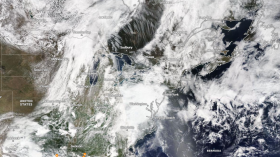The world has changed a lot since the internet became widely available. Digital technologies are developing quickly and opening new job opportunities. Before the internet, people couldn't imagine working at home or having the option to work from wherever they wanted.
Such flexibility is quite common today, with many digital nomads traveling and working remotely. Remote work has become even more popular since the COVID-19 pandemic started, and these trends will only continue.
Naturally, many industries and regulations are adjusting to cater to the needs of digital nomads. One of the latest conveniences digital nomads can count on is visas.
What are digital nomad visas?
Digital nomad visas are programs or documents that give individuals the right to work remotely legally outside their country. People who have permanent residence in their country can work outside its borders if they have a digital visa.
Even though that isn't the official name of these documents, most people call them digital nomad visas. However, each government that issues them has a unique name. Some are exclusive to digital nomads, while others give similar conveniences.
Students and workers can use these visas, but with different requirements and costs. At the same time, every government has specific requirements like proof of research programs, doctoral, graduate, and undergraduate degrees, etc.
In some countries, companies can get digital nomad visas for their employees. It's even possible for a whole organization to work from another country while paying taxes in their native country. While some countries have stricter requirements for granting nomad visas, some are more flexible. For instance, income might be a factor, but some countries make it easier to get nomad visas for people earning less than 3 thousand dollars per month.
Why did countries create these visas?
Here are some of the most important trends that have led to the creation of digital nomad visas.
Tourism decline
The COVID-19 pandemic directly impacted the travel industry, and many businesses closely tied to the industry suffered. People couldn't travel for a longer period, bringing the whole travel world to its knees.
After the travel ban cancellation, many people were still reluctant to travel, and countries looked to get as many visitors as possible, including digital nomads.
Keeping tax money
Countries live from taxes, and let's face it, most younger people don't care where they pay taxes. Many countries are having issues with brain drain as their educated citizens leave after graduating. With digital nomad visas, these people can still work abroad while paying their taxes at home.
Helping the local economy
Even though digital nomads pay taxes at home, they still spend a lot of time abroad, where they eat, rent space, buy their clothes, commute, and so on. In other words, these people help the local economy grow by spending their hard-earned money.
Many digital nomads are very successful professionals that have the luxury of traveling the world while working. Every country wants to attract these people and make them feel welcome.
Growth of online schooling and online workers
There are more online workers and freelancers than ever. People are getting their degrees online and working for companies across the world. It simply makes sense to allow these people to move freely through multiple countries and enable them to make use of professional opportunities.
Challenges digital nomads still face
Even though digital nomad visas are a huge step forward, there are still many challenges these groups of people face. If you are thinking about getting a visa, here are some factors you should consider.
Security
Online security is a significant issue for any remote worker, especially those that work from multiple locations. Nomads use different Wi-Fi networks, co-working spaces, devices, and network services.
That's why it's crucial to set the proper security measures and use modern tools like Virtual Private Network apps, two-factor authentication, antivirus software, encryption, etc.
For instance, antivirus programs safeguard devices from getting infected with malicious viruses. A VPN for Windows can make your work laptop more immune to threats lurking on an unknown network or free Wi-Fi. Furthermore, since a VPN can change your virtual location, you can access more content from various countries.
Travel expenses
Even though many successful people travel the world while working, that isn't as easy as it seems. Finding an excellent job covering your travel costs, including transportation, luggage, and accommodation, is more challenging than you may think.
Creating a good work-life balance
Many digital nomads struggle with establishing a healthy work-life balance when moving through different countries. They either end up working too much and not having enough time to see the beauties of the places they are visiting or spend too much time enjoying themselves and neglecting their work.
Medical insurance
We often take things for granted while at home. You can't seamlessly go to the nearest doctor or get a local dental plan when you're abroad. Instead, they should obtain private medical insurance for that country and hope it provides quality services.
That will cost you more, and even after getting insurance, proper care is not guaranteed as some countries don't have reliable healthcare systems.
Conclusion
Every work has its upsides and downsides. Even though there are challenges to being a digital nomad, more and more opportunities keep opening. Think about your habits and ambitions before you embark on this journey. Additionally, consider physical and digital safety when traveling to a different region.
© 2024 NatureWorldNews.com All rights reserved. Do not reproduce without permission.
* This is a contributed article and this content does not necessarily represent the views of natureworldnews.com





![Wildfire Activity in Wet African Tropical Forests Exacerbated by Deforestation, Climate Change [Study]](https://1471793142.rsc.cdn77.org/data/thumbs/full/70409/280/157/50/40/wildfire-activity-in-wet-african-tropical-forests-exacerbated-by-deforestation-climate-change-study.jpg)
